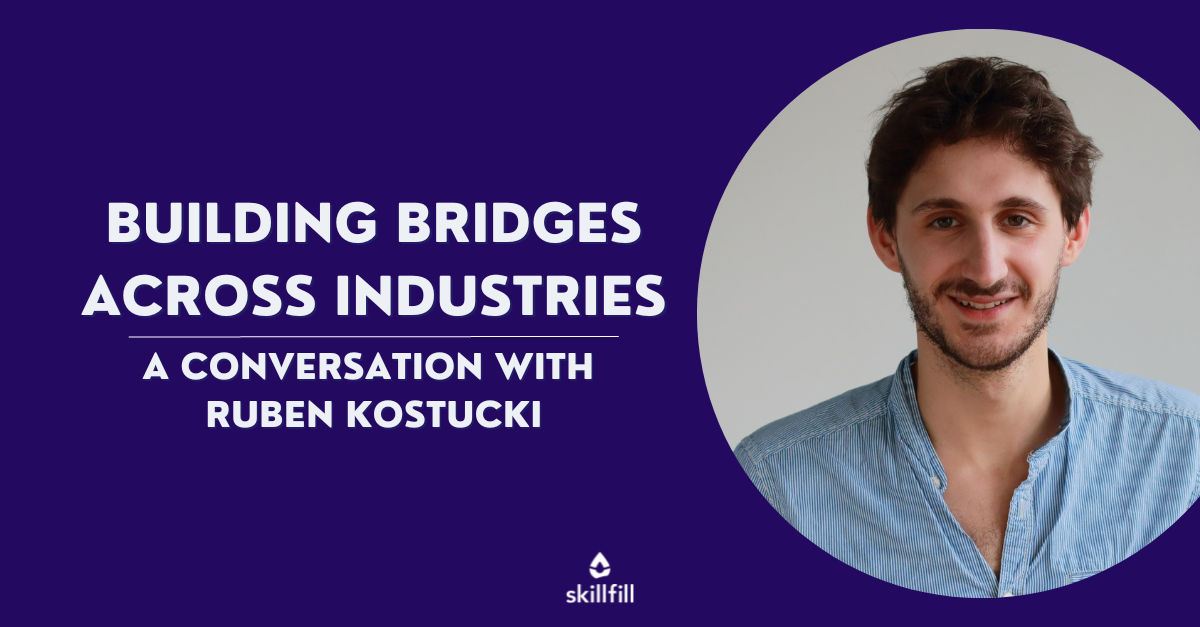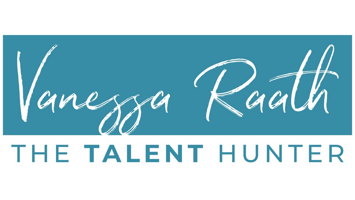Today, we shine a spotlight on the inspiring journey of Oluwatosin (Tosin) Anifowose, who made a...
Building Bridges Across Industries: A Conversation with Ruben Kostucki
There are people who are great sources of inspiration. Ruben Kostucki is one of them. Besides being an investor and coach, he is also one of the co-founder of Whatever.xyz, where he is redesigning the way people learn (online). We sat down with Ruben and explored a wide variety of topics: his ability to seamlessly transition between areas and industries, what is a scale coach, and the mission behind Whatever.xyz, and the role of AI in recruitment.

Looking into your profile, it is easy to get impressed in just a few seconds. A background across multiple industries such as Chemical Engineering, coaching, investing, and across multiple locations, including London, Paris, Singapore, Valencia… Can you explain to the readers your path?
Aha, explaining my path? As Steve Jobs said, you can only connect the dots looking backward. I’m not sure there’s a “path”.
I left Belgium aged 17 to go study in the UK. I hated my studies, which led me to look at building startups quite early on.
This led me to co-build and co-run Makers.tech, the first coding bootcamp to open in Europe. We took the company from just an idea to training many thousands of people into software, data, devops and QA engineers, placing them in companies like Apple, Google, Tesco, Financial Times and the UK Government.
With this unique profile, switching between areas and industries is not something easy and it requires a good dose of adaptability. How was this challenge, and do you have any good tips for the ones looking to make a career change?
I need to divide the answer at a personal and professional level.
Weirdly, at a personal level, it’s hard to advise because I don’t really have a “career” per se. I’ve just done what interested me most, not worrying about collecting things for my CV.
I guess my drive has been about my independence, favoring when to wake up and how to work over money or responsibilities. Don’t want to go old-cliché here, but it’s trusting myself to do what I was curious about. The rest matters less, especially when you don’t have real responsibilities (like being a care-taker, having children etc.). I also have some privileges which are not to be disregarded.
As for adapting to different industries and areas? The brain is malleable when it’s curious and deeply cares about the topic at hand. I’m remodeling my flat right now, and I have to become a semi-expert in insulation, electricity to know what’s happening. The same is true for work.
At a professional level, through my previous startup Makers, it’s true I’ve helped hundreds of people change life by becoming software engineers. Those people left careers and industries that had nothing to do. It’s for sure a challenge, and the ones who succeeded are the ones who were intrinsically motivated by learning to code. The ones who loved the kind of challenges it brought them, who loved spending hours in front of the computer solving those kind of problems are the ones who succeeded best.
So the only advice I can give, if at all, is to do things you’re intrinsically motivated by, and if you are, you should naturally be curious about it.
You are also a “Scale Coach” at Scalewise. What is a “Scale Coach”?
It turned out that, having built and grew Makers over 7 years, I learned how to build and grow a company (up to a certain level). And this turned out to be helpful for other founders on the same journey. Life gave me the opportunity to share this knowledge, and Scalewise is an organization that helps founders connect with people like me (or rather, much better than me!).
Like with therapy, I love doing this as it’s about helping others succeed whilst, hopefully, not repeating the same mistakes I made.
Another incredible business you co-founded is Whatever.xyz. Can you explain its focus and mission?
Whatever 🤷♂️.
Ah, I love it.
My co-founder and I had so much fun with this company name.
Seriously? We’re building whatever we need to make education suck less. Long term, our magic-wand situation is to build a sustainable organization that can invest in Education R&D, trying to create alternative models of education, from infants all the way to adults.
We’ve started with a learning experience platform. We call this Graph.
Graph is a non-linear learning platform, where we’re trying to integrate all the best research and knowledge on educational psychology, so when courses are created, they’re engineered to be effective.
One of the projects you developed at Whatever.xyz is TechMap, focusing on tech recruitment. What is TechMap?
TechMap is the first course we developed on Graph. It’s the only course on the market helping tech recruiters understand tech, designed and built by engineers.
We’ve now trained many hundreds of recruiters globally, for companies like Bloomberg, HelloFresh, CoStar Group, Gov.uk and many more.
What matters most is the outcome: we keep collecting quotes from learners that the course is genuinely helping them gain confidence whilst talking to tech people, increasing their closing-rates and all-in-all allowing them to sound more professional day-to-day.
What would you say to a recruiter that is reading this blog and thinking about getting a TechMap certification?
Try it or book a demo. What is your risk?
When you think about the price and time involved, why not doing it?
How else can tech recruiters (a) grow in their profession and (b) differentiate themselves from others in the industry?
Why not learn more about tech?
How do you see the role of AI in Recruitment?
I suspect it’ll overall act as an “aid”. An “aid” to screen and filter CVs, to transcribe, interpret and analyze calls and interviews, to help recruiters find the best candidates. Of course it could get to a point where some of the recruiters’s job is semi or fully automated. The big risk here, especially in screening, and we’ve heard about this from companies like Amazon, is all the biases that are in-built into the algorithms / LLMs. This could be scary.
This being said, humans are also biased in the recruitment process, so AI could also help. I think a good analogy would be AI checking for cancer in a scan. I’ll still want a trained doctor to give their opinion.
Can you share with us a quote that you really love?
No hay mal que por bien no venga.
This would translate to English as “every cloud has a silver lining”.
This sentence kinda runs my life :)
ASSESS TECH TALENT BEYOND CVs
Start today your 14-day free-trial and identify the best tech talent to join your team.



